NIL
Figures backs bipartisan push for national NIL framework
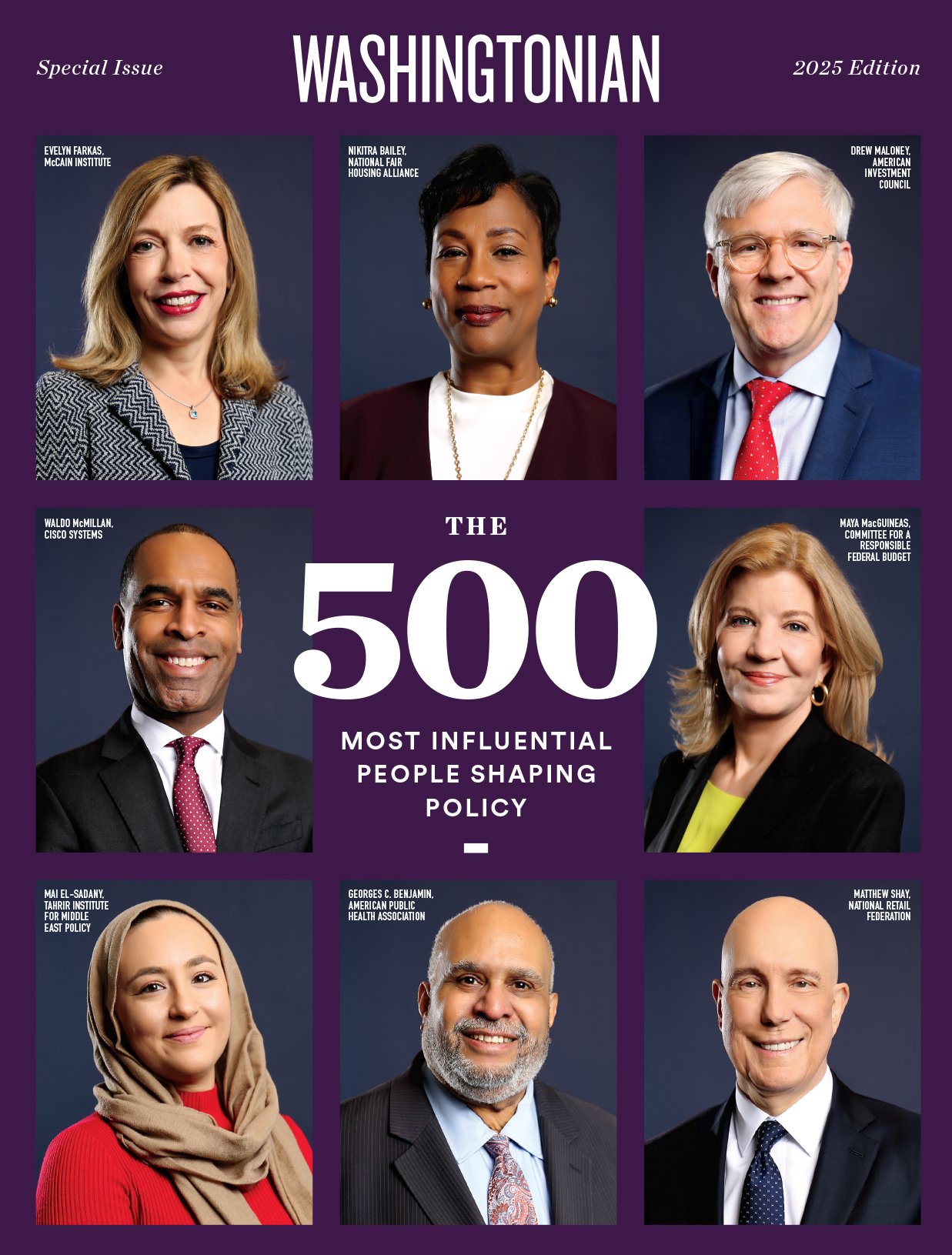
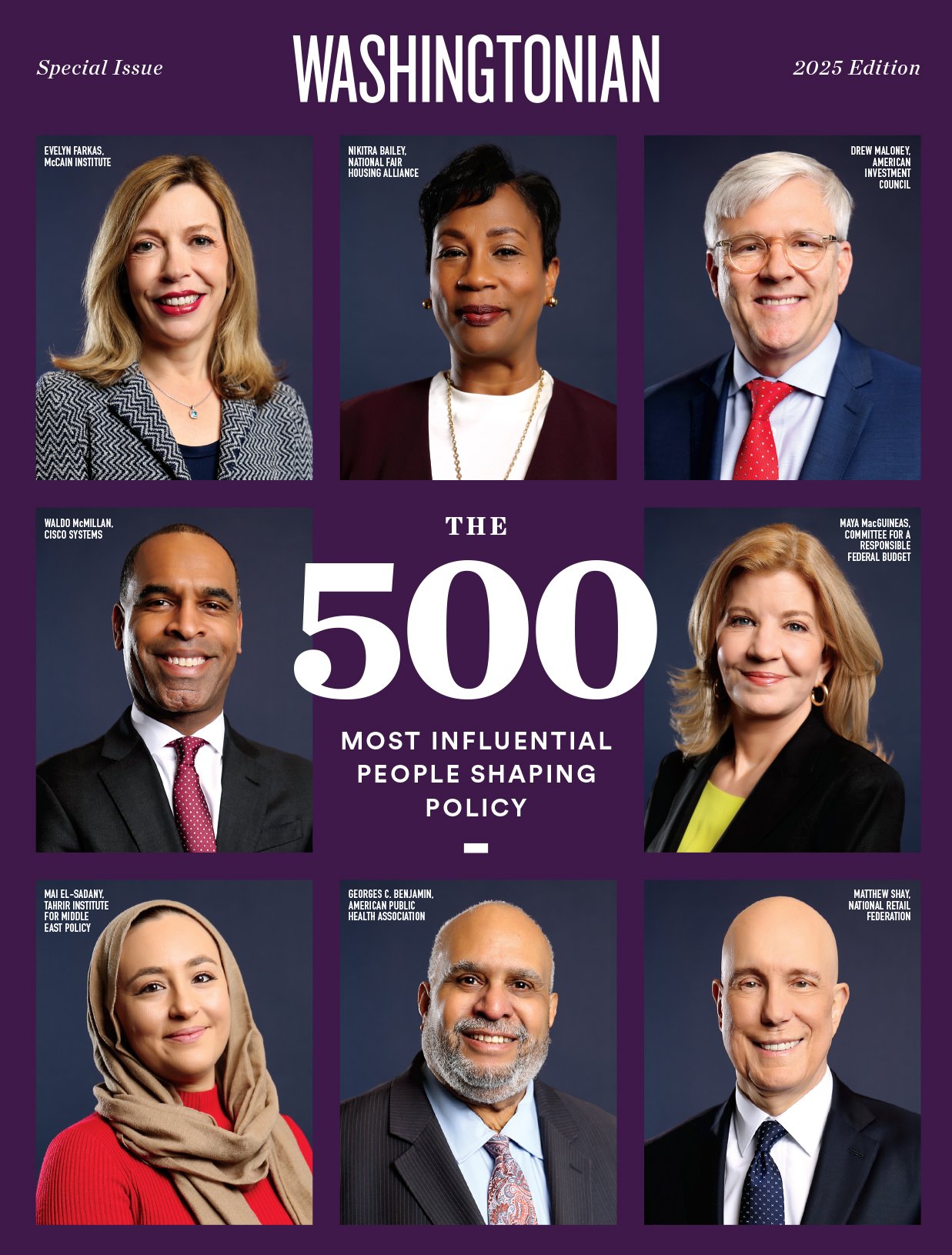
GCM Staff Report
Rep. Shomari C. Figures, D-AL, joined Republican leaders last week to introduce a sweeping bipartisan bill that aims to bring stability and fairness to the fast-evolving world of college athletics.
Figures and Republican chairmen from the Committees on Energy and Commerce, Education and the Workforce and the Judiciary unveiled the Student Compensation and Opportunity through Rights and Endorsements (SCORE) Act. According to a news release, the bill would create a national framework governing how student-athletes can profit from their name, image and likeness (NIL).
“The current college sports environment has drastically changed in the NIL era, and this bill provides a framework to where students can not only be compensated but also have access to resources like health care and financial literacy courses, to ensure they have a solid foundation for their lives after college and we can get back to just playing ball,” Figures said in the release. “I look forward to continuing the bipartisan work to make this the strongest bill possible and protect student-athletes, schools, and our athletic conferences.”
The SCORE Act proposes new rules to address what lawmakers call a chaotic patchwork of state laws that has left universities and athletes struggling to navigate the NIL landscape. According to reports, the measure would:
• Set a nationwide standard for NIL rights, compensation and institutional responsibilities.
• Guarantee student-athletes benefits such as academic and career support, health services, injury protections and grant-in-aid guarantees during and after enrollment at Division I schools.
• Allow student-athletes to accept NIL payments but bar payments from boosters without a valid business purpose, schools that exceed a set limit or deals that violate codes of conduct.
• Empower athletic associations to create rules on booster payments, transfers, recruitment, eligibility and NIL transparency.
• Establish federal preemption over state NIL laws to ensure uniformity.
“NIL offers an endless array of opportunities for student-athletes to make the most of their college experience, but the lack of clear guardrails has left athletes and universities on unstable ground. The SCORE Act creates a national framework that supports student-athletes and recenters the educational mission of college athletics,” said Chairmen Brett Guthrie, R-Ky., Tim Walberg, R-Mich., and Jim Jordan, R-Ohio. “We are proud of this landmark legislation, and we look forward to working with our colleagues to strengthen this American institution.”
The measure has also drawn backing from Reps. Gus Bilirakis, Janelle Bynum, Lisa McClain, Scott Fitzgerald and Russell Fry, who say the SCORE Act will bring needed order to the NIL landscape, protect Olympic sports and help student-athletes earn fair pay while preserving the core mission of college athletics. The legislation aims to guard against exploitation, strengthen accountability and reaffirm the student-first model across programs nationwide.
For the full text of the bill, visit edworkforce.house.gov/news/.
NIL
Desmond Howard reacts to Kyle Whittingham hire at Michigan: ‘Best hire of this coaching cycle’
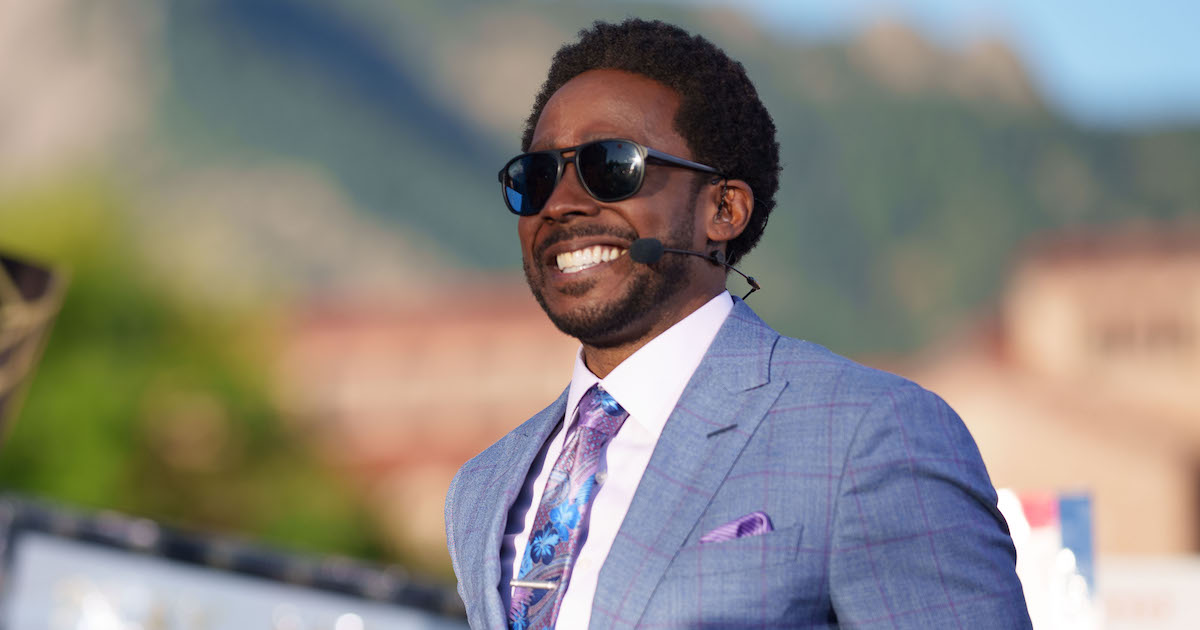
Michigan’s two-week coaching search came to an end Friday as the Wolverines announced Kyle Whittingham would take the role. The reactions are starting to pour in, and UM legend Desmond Howard also spoke about the hire.
Howard has spoken with Whittingham multiple times on ESPN’s College GameDay. The show most recently went to Utah this past year, and Whittingham was part of the festivities ahead of the Utes’ game against Cincinnati.
In a statement Friday night, Howard had high praise for Whittingham and what he can do at Michigan. He also said the Wolverines landed perhaps the top coach in the cycle.
“I want to congratulate the University of Michigan leadership, especially Warde Manuel, for navigating a challenging process and coming away with what I truly believe is the best hire of this coaching cycle,” Howard said. “I’m extremely excited about Coach Whittingham leading Michigan. If you had asked me prior to this to name my favorite head coaches in the sport, his name would’ve been one of the very first I mentioned. He’s exactly what Michigan needs right now.
“Coach Whittingham commands immense admiration across college football, from the media to fellow coaches, and anytime his name comes up among my peers, the sentiment is unanimous: respect. He’s your favorite coach’s favorite coach, and that says everything.”
Whittingham is signing a five-year deal at Michigan, and ESPN reported his salary is at $8.2 million on average. He also will not coach Utah in the Las Vegas Bowl next week. Instead, the expectation is he will head to Orlando to meet with Michigan ahead of the Citrus Bowl.
Kyle Whittingham ‘honored’ to take over at Michigan
Kyle Whittingham replaced Urban Meyer as Utah head coach in 2005 and amassed a 177-88 overall record at the helm – the most wins in Utes history. He initially joined the program in 1994, starting out as defensive line coach ad becoming the Utes’ defensive coordinator in 1995. When Meyer left for Florida in 2005, Whittingham took over as head coach.
Although he announced he’d step down as Utah coach, Whittingham made it clear he wasn’t necessarily done coaching. Now, he’ll prepare to head to Ann Arbor and take over a Michigan team which underwent a major shakeup this month when Sherrone Moore was fired for cause Dec. 10.
“We are honored to lead the outstanding student-athletes, coaches, and staff who represent Michigan Football each day,” Whittingham said in a statement. “Michigan is synonymous with tradition and excellence – both on the field and beyond – and our entire program is committed to upholding those values while striving for greatness together.
“My family and I are thrilled to join the University of Michigan community, and we look forward to helping our players grow, develop, and reach their highest potential – on the gridiron, in the classroom, and as leaders. It’s a privilege to be part of something that inspires pride in every Wolverine fan. Go Blue!”
NIL
Utah AD Mark Harlan releases statement on Kyle Whittingham leaving for Michigan
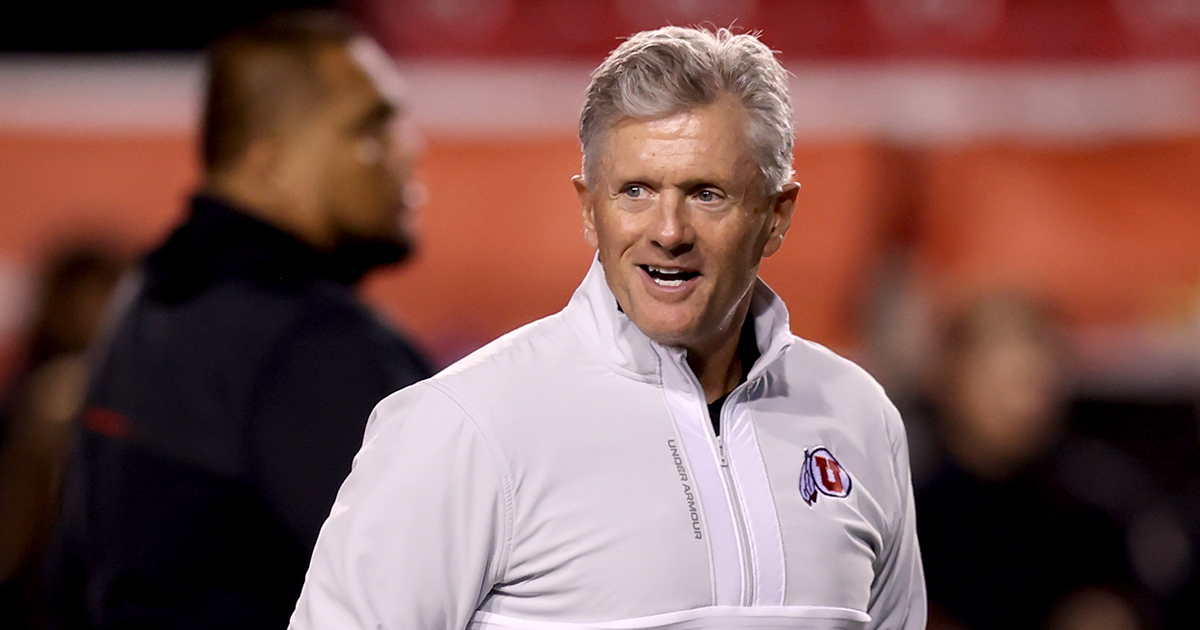
After spending 21 seasons as Utah‘s head coach, Kyle Whittingham will be leading a new program next fall: Michigan. On Friday, the school announced the hire of Whittingham. While the 66-year-old is excited for the next chapter of his career, he won’t forget the memories he made at Utah.
“I am grateful to our administration, staff, players, and coaches for their commitment, trust, and hard work throughout the years,” Whittingham said in a prepared statement. “This university and football program mean a great deal to me, and I am proud of what we have built together. I appreciate the support from the University of Utah allowing me to step away at this time. I also want to thank our fans. Your loyalty, passion, and support have been second to none.
“Whether at Rice-Eccles Stadium or representing Utah across the country, you have made this time special and created memories that will last a lifetime. Utah will always hold a special place in my heart, and I wish Coach Scalley and the program a smooth transition and continued success moving forward. Thank you for everything.”
Whittingham signed a five-year contract with Michigan that will pay him an average of $8.2 million per year. Whittingham’s contract is also 75% guaranteed, which means his 2026 salary is expected to be $8 million.
It’ll be an unfamiliar environment for Whittingham. During his tenure at Utah, he led the program to a 177-88 overall record and three conference titles. He was named the Pac-12 Coach of the Year twice and the Mountain West Coach of the Year once.
Before the Michigan job became available, Whittingham had already announced he was stepping away from Utah at the end of the 2025 campaign. Utah athletic director Mark Harlan expressed his gratitude to Whittingham for all he accomplished at the school.
“The University of Utah is grateful for Coach Whittingham’s incredible contributions over his long tenure at the university, and we wish him and his family all the best with this next step in his career,” Harlan wrote. “After discussions with Coach Whittingham, his representatives and the University of Michigan, we have granted their request to allow him to join the Michigan program immediately.
“Morgan Scalley is fully prepared to take over leadership of the Utah football program, and we join him in keeping our focus on our team, and supporting our student-athletes through this final game of the 2025 season at the Las Vegas Bowl on Dec. 31.”
Utah posted a 10-2 overall record this season and finished 15th in the College Football Playoff rankings. Kyle Whittingham will look to lead the Wolverines to similar success.
NIL
College football program unexpectedly to be without head coach for bowl game
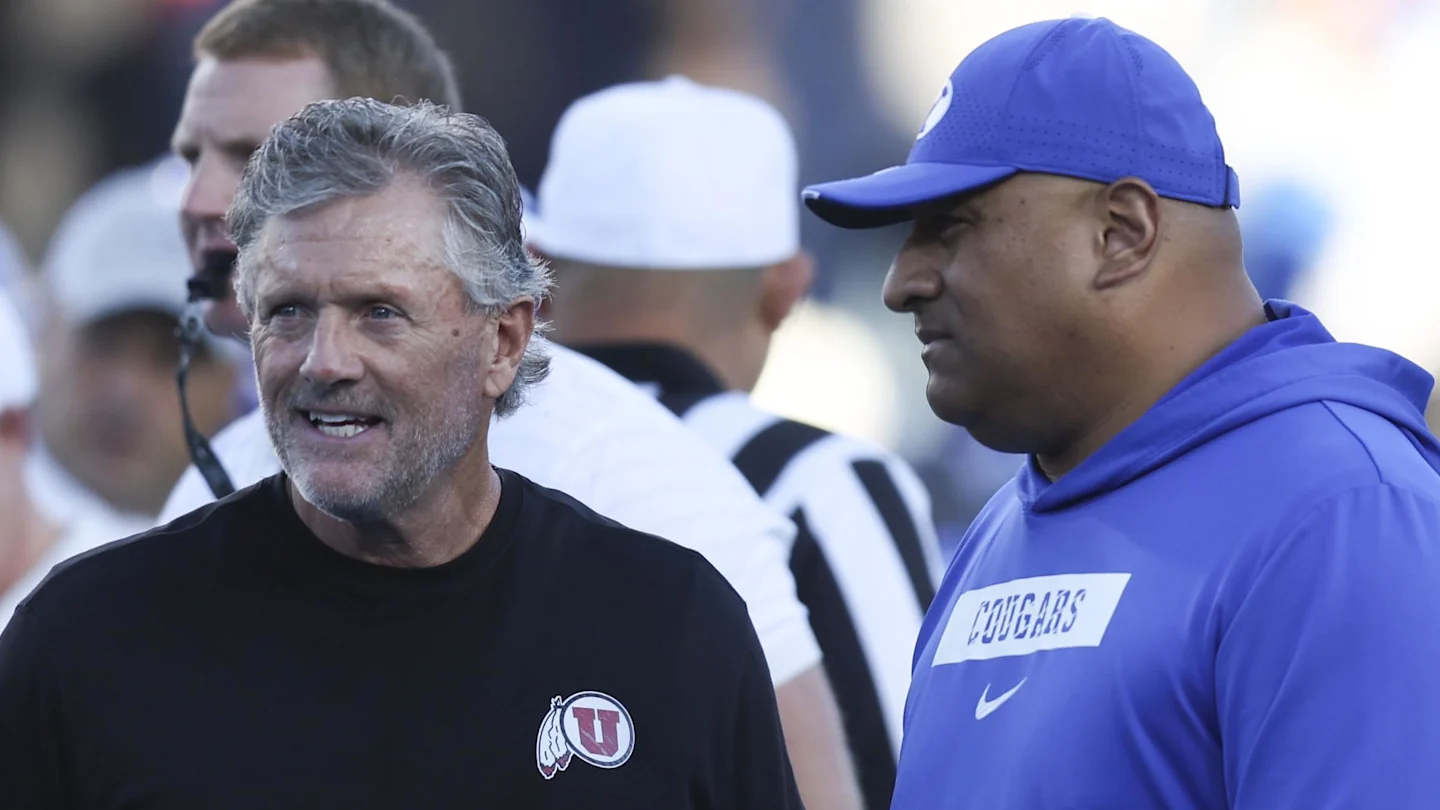
The college football coaching carousel is causing some dysfunction in the final days of December, especially after one program arrived late to the party.
Earlier this month, Michigan came out of nowhere with the news of the offseason, firing head coach Sherrone Moore for cause. The Wolverines moved on from Moore due to an inappropriate relationship with a female staffer.
That left one of the most prestigious programs in the country without a head coach shortly after the Early Signing Period concluded. Michigan has been on a coaching search since then, but the pool has thinned, with most candidates hired by other schools.
The Wolverines have finally found their man, and the move came at the expense of a team set to play in a bowl game in less than a week.
Kyle Whittingham Won’t Coach Utah In Bowl Game
Michigan officially announced the hiring of Utah head coach Kyle Whittingham on Friday evening. According to ESPN, Whittingham signed a five-year deal averaging $8.2 million per season, including $8 million next year.
Whittingham coached the Utes for the last 21 years. He was promoted to head coach ahead of the Fiesta Bowl in 2004, replacing Urban Meyer, who was hired away by the Florida Gators. Whittingham led the program to a 177-88 overall record and 11 postseason victories.
Along with accumulating the most wins in program history, he’s won numerous Coach of the Year honors and guided Utah through three different conferences. In 2025, the Utes compiled a 10-2 record and qualified for the SRS Distribution Las Vegas Bowl.

Whittingham’s swift departure means he won’t have the opportunity to coach in Utah’s final game of the season. Per ESPN’s Pete Thamel, the longtime head coach is headed to Orlando to begin his duties with the Wolverines. Michigan takes on Texas in the Cheez-It Citrus Bowl on December 31.
That’s the same day Utah is scheduled to kick off against Nebraska in Las Vegas. Whittingham has already notified his players of the decision.
In a statement, Utah athletic director Mark Harlan declared that defensive coordinator and safeties coach Morgan Scalley would assume the role of head coach. Scalley was named the program’s head-coach-in-waiting leading up to the 2024 season.
Scalley was a finalist for the Broyles Award in 2019, which goes to the top assistant in college football. He’s guided multiple top defenses at Utah and has been with the program in various positions since 2007.
Read more on College Football HQ
• College Football Playoff team loses key starter to NCAA transfer portal
• College Football Playoff team loses former starter to transfer portal
• College Football Playoff team has taken 3 major hits in trenches via transfer portal
• College football team set to be without nearly 20 players for upcoming bowl game
NIL
Four-star WR Brady Marchese requests release from Michigan Football
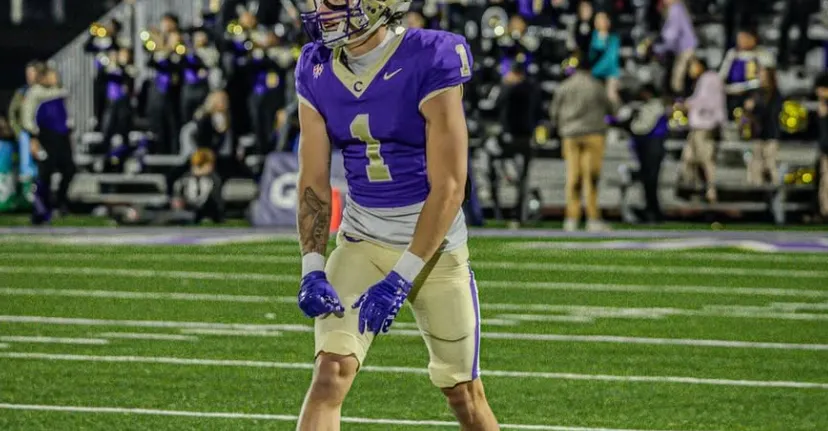
As first reported by On3’s Hayes Fawcett on Friday afternoon, 2026 four-star wide receiver signee Brady Marchese has requested a release from his national letter of intent with the Michigan Wolverines.
The Georgia native flipped from the hometown Georgia Bulldogs to Michigan during the early signing period earlier this month. Marchese is the third 2026 class member to do so following the firing of head coach Sherrone Moore, as he joins four-star tight end Matt Ludwig and three-star offensive lineman Bear McWhorter to ask out of their letter of intent.
The Wolverines now have just two wide receivers left in the incoming freshman class — four-star Travis Johnson and three-star Jaylen Pile.
NIL
Michigan Announces Hiring of Utah Legend Kyle Whittingham As New Head Coach
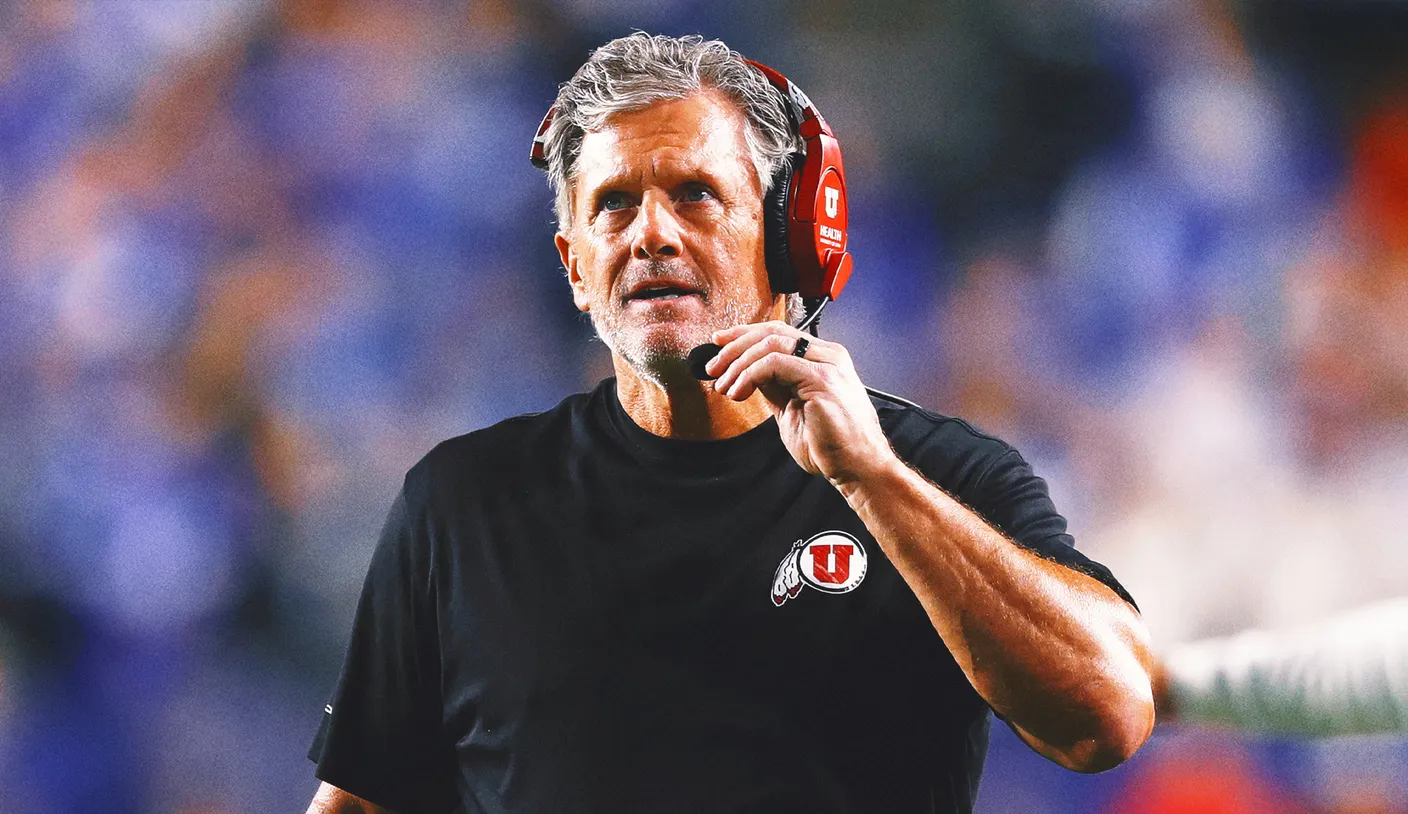
Michigan has found its next head coach, as the Wolverines are hiring former Utah Utes coach Kyle Whittingham to a five-year deal, per Yahoo Sports and ESPN.
Michigan athletic director Warde Manuel later confirmed the move in a statement announcing the hire of Whittingham as the school’s 22nd head football coach.
“Kyle Whittingham is a well-respected and highly successful head coach who is widely recognized as a leader of exceptional character and principled leadership,” Manuel said Friday. “Throughout our search, he consistently demonstrated the qualities we value at Michigan: vision, resilience, and the ability to build and sustain championship-caliber teams. Kyle brings not only a proven track record of success, but also a commitment to creating a program rooted in toughness, physicality, discipline and respect — where student-athletes and coaches represent the university with distinction both on and off the field. We are excited to welcome Kyle to the University of Michigan family as he takes the helm of our football program.”
The new pact is 75% guaranteed and includes an average of $8.2 million per year, with Whittingham expected to make an $8 million salary in 2026, according to ESPN.
Whittingham announced earlier this month his plans to step down after Utah’s bow game vs. Nebraska – the Las Vegas Bowl is set for Dec. 31 – following his multi-decade tenure with the program. But he joked at the time that he wasn’t retiring and instead merely entering the transfer portal. With the actual transfer portal opening up on Jan. 2 and Michigan still without a head coach, the timing of the hiring worked out for both parties.
Whittingham will be leaving Utah to be at the Citrus Bowl, where Michigan will play against Texas, according to FOX Sports’ Bruce Feldman.
[What’s Next: 3 Priorities for Kyle Whittingham, Reportedly Michigan’s New Coach]
“I am grateful to our administration, staff, players, and coaches for their commitment, trust, and hard work throughout the years,” he wrote in a statement. “This university and football program mean a great deal to me, and I am proud of what we have built together. I appreciate the support from the University of Utah allowing me to step away at this time.
I also want to thank our fans. Your loyalty, passion, and support have been second to none. Whether at Rice-Eccles Stadium or representing Utah across the country, you have made this time special and created memories that will last a lifetime.
Utah will always hold a special place in my heart, and I wish Coach [Morgan] Scalley and the program a smooth transition and continued success moving forward. Thank you for everything.”
The 66-year-old Whittingham began his coaching career as a graduate assistant at BYU in 1985 after playing as a linebacker in college for BYU before a brief stop in the NFL with the Los Angeles Rams in 1987. He also played in the United States Football League and Canadian Football League before devoting himself entirely to coaching. He served as the defensive coordinator for Eastern Utah, the special teams and linebackers coach for Idaho State before becoming the defensive coordinator in 1992. He then joined Utah’s coaching staff as the defensive line coach in 1994 and moved on to defensive coordinator before becoming the head coach in 2005.
Whittingham has a 177-88 lifetime record in the NCAA, and the Utes were 11-6 in bowl games during his time leading them. He brought Utah the Mountain West Conference championship in 2008, back-to-back Pac-12 championships in 2021 and 2022 and four Pac-12 division championships in 2015, 2018, 2019 and 2021. Whittingham received Coach of the Year honors in both the Mountain West and the Pac-12 and is the all-time leader in wins for Utah.
Utah’s athletic director Mark Harlan later praised Whittingham’s run and acknowledged the program is “fully prepared” to transition to Morgan Scalley, who was promoted on Dec. 13 after 10 seasons as defensive coordinator.
“The University of Utah is grateful for Coach Whittingham’s incredible contributions over his long tenure at the university, and we wish him and his family all the best with this next step in his career. After discussions with Coach Whittingham, his representatives and the University of Michigan, we have granted their request to allow him to join the Michigan program immediately.
Morgan Scalley is fully prepared to take over leadership of the Utah football program, and we join him in keeping our focus on our team, and supporting our student-athletes through this final game of the 2025 season at the Las Vegas Bowl on Dec. 31.”
“Kyle Whittingham is exactly what Michigan needs as a program right now,” FOX Sports College Football Analyst Robert Griffin III posted to X in reponse to the news. “Runs a disciplined program with an edge to it. Is a defense first coach who will play complimentary football. Eager to prove he isn’t done winning. Sounds like what Michigan itself needs.”
The Wolverines – who have had nine different head coaches, including interim coaches during Whittingham’s tenure with Utah – had been targeting Whittingham surely because of his continued success with Utah, whether in the Mountain West, Pac-12 or Big 12. There’s also his ability to build Utah into a strong program, despite a lack of relative resources compared with bigger football schools, like the one he’s now taking over.
Michigan’s previous coach, Sherrone Moore, was fired for cause on Dec. 10 following an investigation about an inappropriate relationship with a staff member. Following his firing, Moore was charged with three crimes, including home invasion.
“U-M head football coach Sherrone Moore has been terminated, with cause, effective immediately,” Manuel said in a statement. “Following a University investigation, credible evidence was found that Coach Moore engaged in an inappropriate relationship with a staff member. This conduct constitutes a clear violation of University policy, and U-M maintains zero tolerance for such behavior.”
Moore, who was in his second season with Michigan, was suspended for two games in 2025 as part of self-imposed sanctions for NCAA violations related to an advanced scouting scandal. The NCAA added a third game to the suspension, which was to keep Moore off the sideline for next year’s opener against Western Michigan. Moore previously deleted his entire 52-message text thread on his personal phone with former staffer Connor Stallions, who led the team’s sign-stealing operation for the program. The texts were later recovered and shared with the NCAA.
The Associated Press contributed to this report.
Want great stories delivered right to your inbox? Create or log in to your FOX Sports account, and follow leagues, teams and players to receive a personalized newsletter daily!
NIL
ACC team’s NIL provision could punish athletes for others’ disclosure of deals
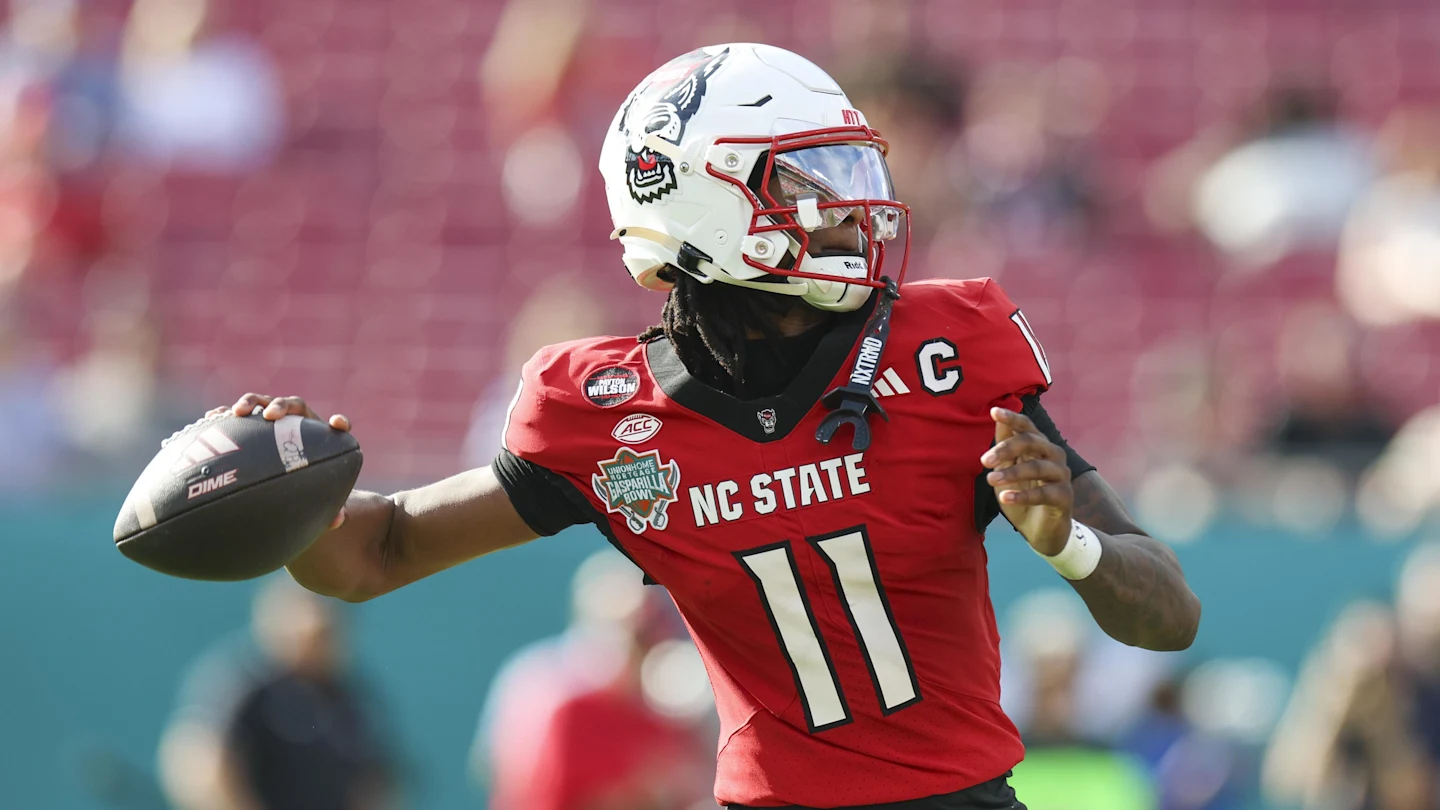
The NIL era of college athletes is constantly changing and evolving. Sometimes, the terms of NIL situations change based on new understandings, and sometimes, they change because existing terms simply aren’t sustainable.
One critic of the NIL contracts at North Carolina State has raised a substantial issue. Attorney Darren Heitner, as shared by Sports Business Journal. raised a substantial NIL issue about the Wolfpack in a recent social media post.
Heitner noted that in reviewing NC State’s NIL agreement, he was concerned by a provision under which “athletes are liability for confidentiality breaches by the own reps” including parents, agents, and attorneys. More specifically, under the provision, athletes could lose up to 50% of payment if terms are disclosed. This provision exists despite, as Heitner notes, athletes having “no control over third parties.”
Heitner concluded his analysis by noting, “Universities shouldn’t be drafting one-sided provisions that penalize students for others’ actions.”‘
Noticed a troubling provision in NC State #NIL agreement. Athletes are liable for confidentiality breaches by their own reps (parents, agents, attorneys). Athlete can lose 50% of payment if terms are disclosed despite having no control over third parties. Universities shouldn’t…
— Darren Heitner (@heitner) December 25, 2025
The veil of secrecy around NIL is very clear and obvious. It is perhaps unsuprising that the players themselves are contractually barred from discussing terms of NIL arrangements. After all, student-athletes have not broadly been allowed to unionize and there’s doubtlessly some concern among schools that if moe information is freely available, athletes will play schools off of each other on the respective deals.
But the potential to hold athletes fiscally responsible for disclosures by third parties is an unusual provision. Given the two-way relationship between athletes and agents, that particularly issue might even be plausible. Buf saying that if an athlete’s parents reveal some aspects of an NIL deal, the athlete might forfeit half of the slated pay is indeed a confusingly draconian proposal.
This is particularly interesting in light of the House requirement that athletes are required to disclose NIL deals that have a value exceeding $600. Based on the House case, athletes are required to disclose deals even if the deals otherwise would be subject to non-disclosure language. Accordingly, the mandated legal requirements on athletes could already run afoul of non-disclosure provisions, which would seem to further make NC State’s penalty for disclosure even more questionable.
Advocates of NIL revision consistently suggest that a single binding framework will help overcome inconsistent issues across various states and schools. Apparently, one of the issues that might be legislated is this potential responsibility against an athlete for third-party disclosure.
-

 Motorsports2 weeks ago
Motorsports2 weeks agoSoundGear Named Entitlement Sponsor of Spears CARS Tour Southwest Opener
-

 Motorsports3 weeks ago
Motorsports3 weeks agoDonny Schatz finds new home for 2026, inks full-time deal with CJB Motorsports – InForum
-
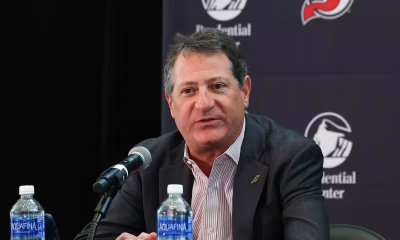
 Rec Sports3 weeks ago
Rec Sports3 weeks agoDavid Blitzer, Harris Blitzer Sports & Entertainment
-
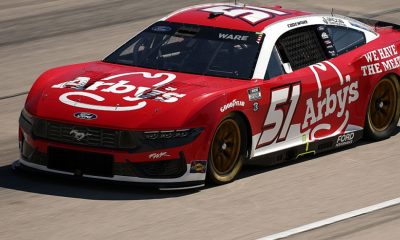
 Motorsports3 weeks ago
Motorsports3 weeks agoRick Ware Racing switching to Chevrolet for 2026
-

 NIL2 weeks ago
NIL2 weeks agoDeSantis Talks College Football, Calls for Reforms to NIL and Transfer Portal · The Floridian
-

 Technology3 weeks ago
Technology3 weeks agoWearable Gaming Accessories Market Growth Outlook
-

 Sports2 weeks ago
Sports2 weeks ago#11 Volleyball Practices, Then Meets Media Prior to #2 Kentucky Match
-

 Sports3 weeks ago
Sports3 weeks agoWomen’s track and field athletes win three events at Utica Holiday Classic
-

 Motorsports2 weeks ago
Motorsports2 weeks agoSunoco to sponsor No. 8 Ganassi Honda IndyCar in multi-year deal
-
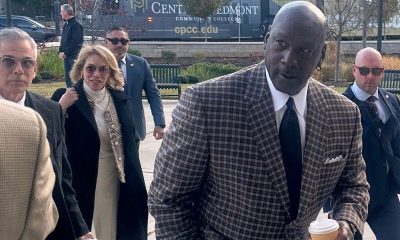
 Motorsports3 weeks ago
Motorsports3 weeks agoNASCAR owes $364.7M to teams in antitrust case

































